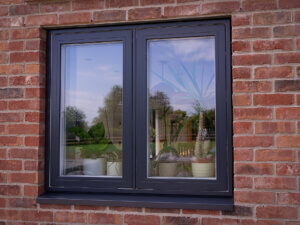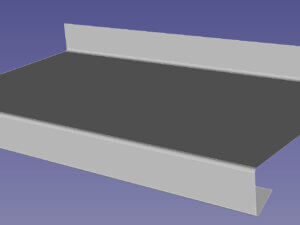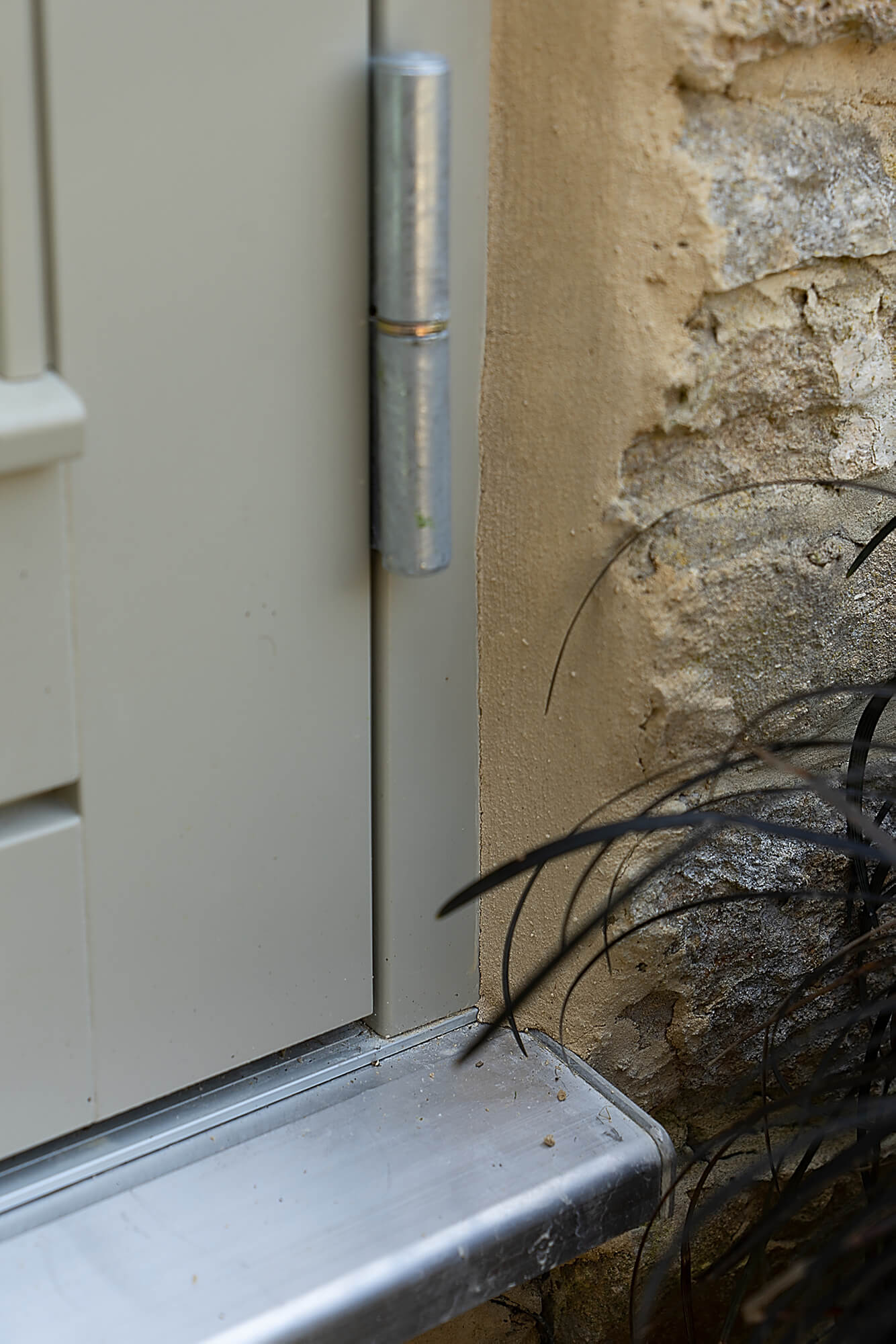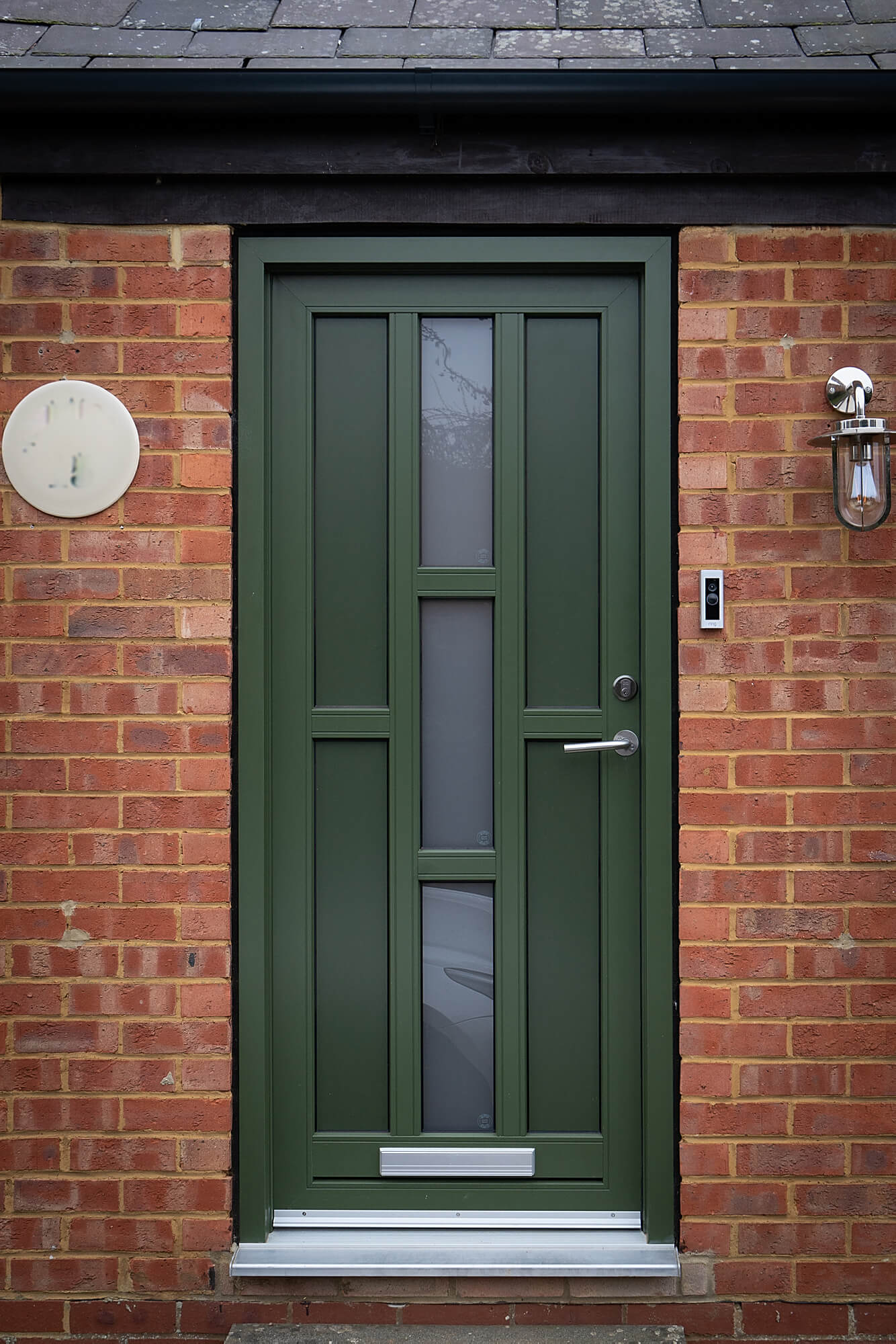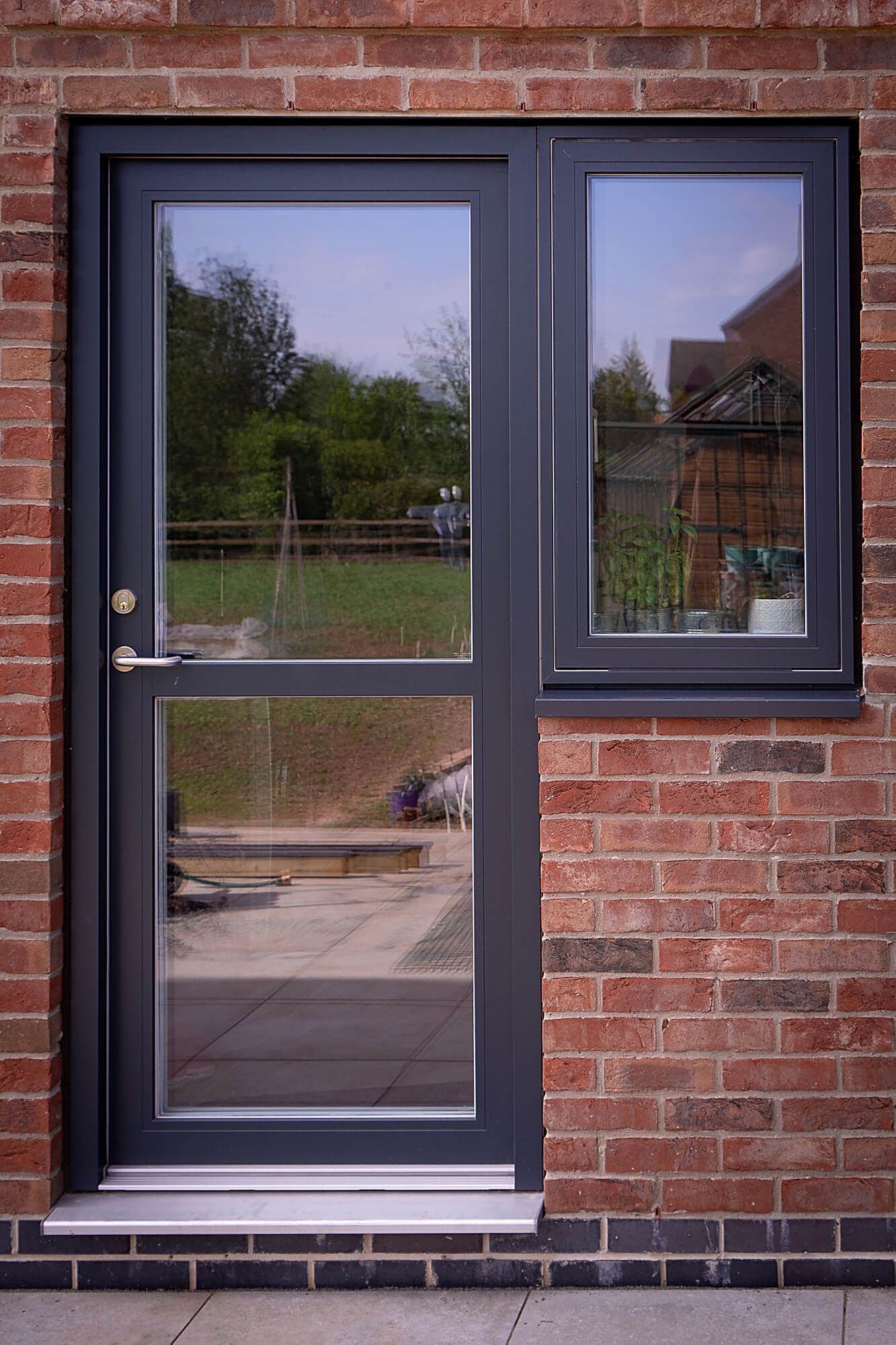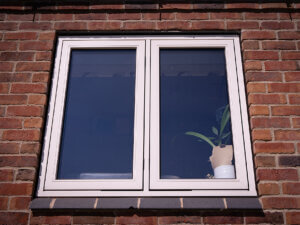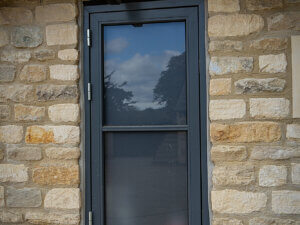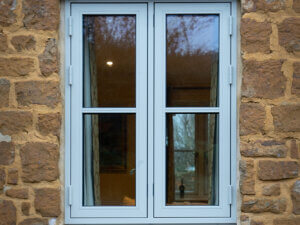According to one of our customers, the main purpose of an external window cill is to provide a surface to rest his coffee mug on. And their secondary purpose is to take rainwater away from the building to prevent it pooling at the base of the window and finding a route inside. Building Regulations suggest it’s the latter that’s most important but, either way, you’ll probably need a cill of some description underneath your windows.
In most cases, window cills are a completely separate addition to the main window frame – it’s rare that you have a window with them properly built-in. Since it’s this separate item, it presents an opportunity for choice!
When you have plastic or aluminium windows, there’s an obvious answer. For both, you’ll just be given a “box cill” in the same material. It has a set height and depth, and simply cut to the right length to suit the window. And there’s no reason to make it more complicated than that for those options. When we reach timber and alu-clad timber windows though, it’s worth considering some other ideas so that the finished result will be as neat and as functional as possible.
Timber Cills
It’s perfectly logical to think that a timber window should have a timber cill. It will obviously match the appearance of the window frame in both colour and material. Traditionally, this is also the go-to option.
Consider for a moment though: this is part of the window (or door) where every drop of rainwater is going to end up after it runs down the face of the unit. That’s why you’ll often see a timber window that looks perfectly fine…apart from a rotting cill underneath.
So, maybe it’s worth looking into something else to prolong the life of the window as a whole…
Aluminium Pressings (Not Boxes!)
These are great for windows. Before the window is put into manufacture, we subtract about 25mm from the height. This gives us space to insert a treated timber packer underneath the window which, in turn, provides a surface for us to attached a relatively simple and thin section of powder-coated aluminium.
This solution means that we can precisely measure the depth needed after the window is installed, so the result is the neatest-possible cill section, as well as the added durability over timber.
Using aluminium cills on a alu-clad timber window obviously isn’t a huge stretch. But do they really work for timber aesthetically? Well, we think so, but you’re very welcome to disagree! We make sure that both the colour code and the gloss level are identical, so the actual real-life difference is unbelievably small.
However, for doors, these are not a good idea: if this cill pressing is accidentally stepped on as someone walks through a door, it will just bend downwards.
Aluminium Boxes Again
Underneath doors, these are a much better idea. They’re more expensive that pressings, and don’t have the same infinite depth options (you can only choose between set depths, eg 190mm and 225mm are the largest). But the advantage is their strength if accidentally stepped on.
We offer two options: colour-coded to match the frames is probably the most requested.
Alternatively, some prefer to have a bare aluminium finish. This might not sound so good initially, but does have a couple of advantages:
Firstly, it’s cheaper. But, perhaps more importantly, it’s easier to fix any scratches. If a colour-coded cill gets scratched by someone walking over it, then the only option is a complete re-paint. With the bare aluminium, scratches can just be polished-out.
Other (Better?) Materials
Despite the above, it’s becoming more common for us to not supply any cills at all… Homes still need something to take water way from the building, and newbuilds especially tend to go for more creative solutions.
Stone cills, brick cills, slate cills… All these have a defined appearance that can create effective highlights throughout a build. If done correctly, they can completely negate the need for both window and door cills from you window supplier.
For the most part, we see stone cills under windows and bullnose cant bricks underneath doors, often with a drain channel nearby.
Contact us!
For any questions about our products and services, or to get your quote,
please get in touch by phone, email, or using our in-browser contact form!
Leamington: 01926 935 607
London: 0203 633 0476
E-mail : sales@enlightenedwindows.co.uk
Contact Form: Contact Us

